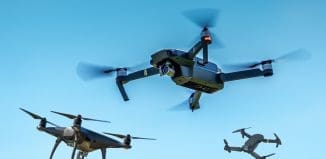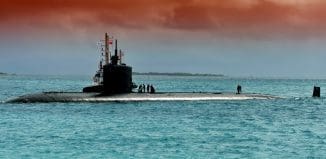Cold War Foes Sinking Deeper into Syrian Quagmire
This post is also available in:  עברית (Hebrew)
עברית (Hebrew)
Konstantin Bodragin
US Defence Secretary Ashton Carter has presented President Obama with a plan to put boots on the ground in Syria and Iraq. According to the proposal, US troops would assume battlefield-related roles in areas of Syria and Iraq. Under such a development, direct contact between US troops and ISIL militants would be highly likely.
The proposal comes in the wake of growing recognition that current US strategy has failed to deliver satisfactory results, with ISIL forces occupying much of Syria and northern Iraq.
Carter’s proposal calls for deploying a limited number of Special Operations forces in Syria and to put US advisers closer to the frontlines in Iraq. This deployment would represent a sharp turning point in US operations in the area. President Obama so far avoided escalation of US involvement in the regional conflict, with a stated goal of a final withdrawal of American troops. Special Ops. forces have previously engaged in several swift forays into Syria, however none have followed a strategic deployment plan. Rather, they were carried out as rapid tactical responses.
If the plan is put into effect, a small number of US forces would be stationed and work alongside moderate Syrian Arab rebels, as well as Kurdish fighters from the People’s Protection Units, or YPG. The latter tie could further test US-Turkish relations, in light of the intensifying conflict between Turkish security forces and the YPG’s sister organisation, the People’s Defence Force, or HPG, and other militant groups associated with the separatist Kurdistan Workers’ Party, the PKK. Clashes between the separatist group and the Turkish state have been becoming more frequent and violent in the runup to Turkish national elections, with bombings and military sorties claiming many combatant and civilian lives on both sides. After pulling its Patriot missile defence systems from Turkey, this move by the US could further disrupt an already tense relationship.
“We won’t hold back from supporting capable partners in opportunistic attacks against ISIL or conducting such missions directly,” Carter said in a Senate hearing recently. “Whether by strikes from the air or direct action on the ground.”
Carter’s words signal US preparedness to cooperate with all factions that could assist in the fight against ISIL, including Iran-back Shiite militias in Iraq. Across the border, however, Shiite militias backed by Iran are fighting in support of Syrian President Bashar al-Assad, who in turn is fighting against the US backed Kurdish and Sunni Arab militias. President Obama has previously stated that Assad must go if there is to be any hope for peace.
The situation is further complicated by Russian presence in Syria. Russian airstrikes, nominally aimed at ISIL, have been targeting some US allies, as well as hitting civilians, reportedly one civilian for every two militants.
According to the Russian Defence Ministry, from 30 September to 22 October, Russian jets conducted 934 sorties from Hmeymim airbase, destroying 819 targets. While Russian involvement in the conflict is still in its infancy and fairly minimal – ground troops yet to be involved in serious fighting – heavy and frequent bombing missions are stretching supplies to their limits.
Russian defence company Tactical Missiles Corp has ramped up production to meet increased demand, switching to a three-shift production cycle. Production of Kh-29L high-precision air-to-surface missiles and KAB-500s guided bombs – set to replace the barrel bombs allegedly used by the Assad regime until now – has been increased. Furthermore, the Russian Navy purchased eight cargo vessels from Turkish ship operators, registering them as military support ships, to satisfy carriage demand.
Moscow’s intervention in the Syrian conflict will have the unintended consequences of drawing Russia into a quagmire and alienating Sunni Muslims across the region, US Deputy Secretary of State Antony Blinken said.
Increased activity in the Syrian theatre, from Russia and Iran on the one end and the US on the other, could increase the risk of direct conflict between the sides. With relations between the West and Russia already strained, a proxy war, if not a full-blown military confrontation between the sides, could ignite easily. Neither the US nor Russia wish to get too deeply involved in the violence, but with the conflict well into its fifth year, all major actors will have to display significant restraint and grudging cooperation to prevent rapid escalation.




























